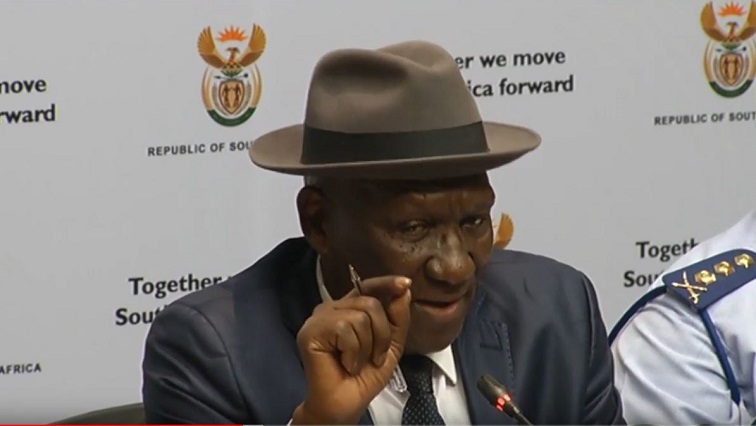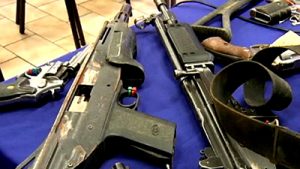Gun Free South Africa is calling for the running of the police’s Central Firearms Registry to be outsourced because it is dysfunctional.
The lobby group’s, Claire Taylor, says that the problems at the Firearms Registry are systemic and historical.
She cited the case of former police officer, Christian Prinsloo, who has been convicted of stealing firearms from the central registry and selling them illegally.
Gun Free South Africa recently instituted a class action against the minister of police.
Management of the Police’s Central Firearm Registry
This as a result of deaths or injuries due to guns illegally sold by Prinsloo, who was convicted of stealing arms from police controls and selling it to criminals, particularly in the Western Cape.
He altered details of the arms from the police register.
Gun Free’s Claire Taylor says the case is about strengthen the country’s Central Firearm Registry.
“Three options were explored; the one was privatising the Central Firearm Registry; secondly, was devolving the functions of the registry to, for example, other government departments; and thirdly, it was establishing an independent authority. And it seems establishing the independent authority would be the most viable alternative in that it would still report to the police and could assist the police with criminal investigations.”
Deputy Chairperson of the African Policy Civilian Oversight Forum and former Chair of the Police Portfolio Committee, Annelize van Wyk says the firearm registry in the country is in disarray.
“The police see the firearm register as an administrative burden. What they need to realise is that if they have proper effective transparent Central Firearm Register, that it can become a crime fighting tool, and that is what we need to get through to the police, that an effective firearm register and effective central firearm office at a police station is a very important intelligence source that can be used by detectives at a police station and police in fighting crime because it’s your first lead to what and who owns what weapons within an area,” explain van Wyk.
Police Ombudsman for the Western Cape Oswald Reddy says the availability of firearms is a high risk environment that gets compounded by corruption and criminality by police themselves.
“Those dodgy elements, criminal underworld, gangs, etc., they would identify specific police officers and then would attempt to get close to them, irrespective of rank, and then offer them an incentive, financially, to speed up the process or bypass the process. If a firearm is turned down at the police station, where the individual resides, they would then give a different address and make an application elsewhere. Those are some of the challenges. There needs to be a complete review. I would like to call it business process re-engineering exercise to identify bottlenecks and put a plan in place because the current plan is not working.”
Gun Free has promised to engage and share results of its international research on best practices for the firearms registry of the country.



